Jonathan Swift made a soul for the gentlemen of this city by hating his neighbor as himself
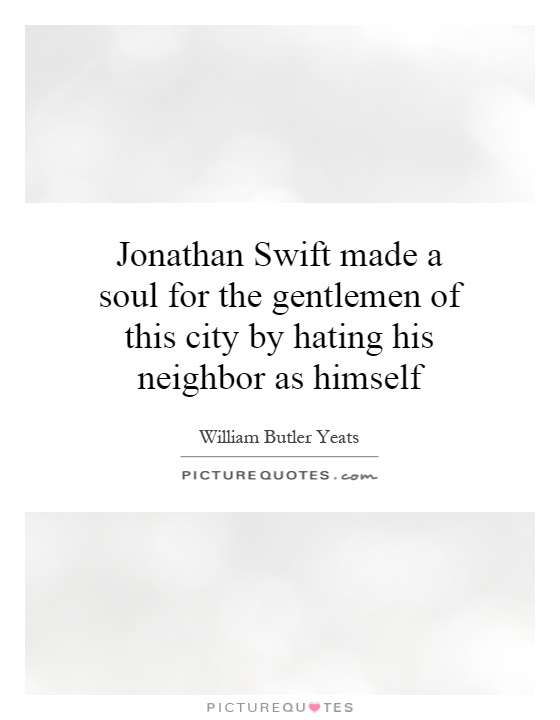
Jonathan Swift made a soul for the gentlemen of this city by hating his neighbor as himself
Jonathan Swift, the renowned satirist and author of Gulliver's Travels, is often remembered for his sharp wit and biting commentary on society. One of his most famous works, A Modest Proposal, is a prime example of his ability to use satire to highlight the absurdity of certain social norms and practices. In this work, Swift suggests that the impoverished Irish should sell their children as food to the wealthy English landowners in order to alleviate their economic hardships.However, Swift's satirical works were not just meant to entertain or shock his readers. They were also a reflection of his deep-seated beliefs and convictions about the world around him. Swift was a man who was deeply concerned with the moral and ethical decay of society, and he used his writing as a means to expose and criticize the injustices and hypocrisies that he saw.
In the context of William Butler Yeats, another prominent Irish writer and poet, Swift's words take on a new significance. Yeats, like Swift, was a keen observer of society and a critic of the status quo. He too used his writing to explore themes of power, politics, and morality, and to challenge the prevailing norms and values of his time.
When Swift wrote that he made a soul for the gentlemen of this city by hating his neighbor as himself, he was not advocating for hatred or animosity towards others. Rather, he was pointing out the hypocrisy and selfishness that often underlie human interactions. In a society where greed, corruption, and inequality are rampant, Swift's words serve as a reminder of the importance of empathy, compassion, and solidarity.
Yeats, who was deeply influenced by Swift's works, understood the power of satire and social commentary to effect change. Like Swift, he believed in the power of words to challenge and provoke, to inspire and enlighten. In his own poetry and prose, Yeats continued the tradition of using art as a tool for social critique and transformation.


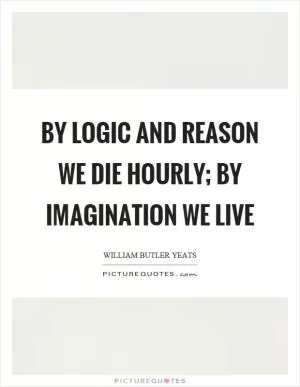


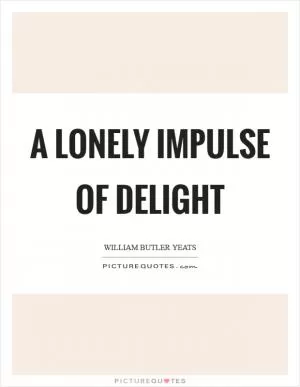
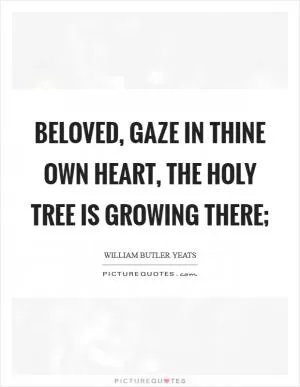



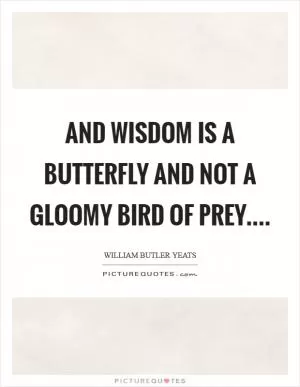

 Friendship Quotes
Friendship Quotes Love Quotes
Love Quotes Life Quotes
Life Quotes Funny Quotes
Funny Quotes Motivational Quotes
Motivational Quotes Inspirational Quotes
Inspirational Quotes